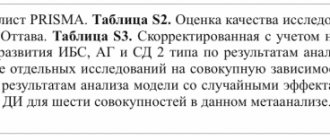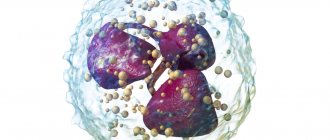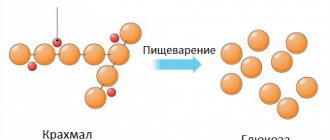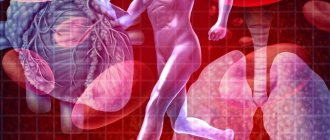Role, function
This is an organic substance formed in the liver after the breakdown and processing of ammonia. This process requires more than one step. As a final product, it passes from the liver into the bloodstream. It is excreted with waste products through the kidneys.
If it fails to break down ammonia, it begins to poison the body due to its toxicity.
Therefore, it is important that the content of this compound in serum is within normal limits.
Urea itself is not important, but the body needs it to safely eliminate nitrogen, which is its main function.
This relationship is an indicator indicating a certain imbalance in the functioning of all systems and organs, and indirectly characterizes the activity of the liver and kidneys.
The meaning and functions of urea in the body
The breakdown of proteins in the body is one of the most important biological processes, since it is thanks to it that energy is released, which provides a person.
As a result of the breakdown of proteins, other components are formed, among which is extremely toxic ammonia. It poses a particular danger to the brain. Therefore, the resulting ammonia must be quickly neutralized and removed from the body.
Ammonia is eliminated through a series of complex chemical reactions, during which urea is formed, which is the end product of nitrogen metabolism in the body.
The formation of urea occurs in the liver, after which, due to its high penetrating ability, it enters the blood. When the blood is filtered by the kidneys, most of the urea is excreted from the body.
Norms
This substance is constantly created and eliminated from the body, so its correct content is important for humans.
Changes in levels can be used for monitoring
- performance of the renal and excretory systems;
- the presence or absence of liver dysfunction;
- condition of muscle tissue because it contains protein, which when broken down produces urea.
The normal value is almost independent of gender, but differs in adults and children:
- in newborns - 2.0-7.3 mmol/l;
- In children under 14 years of age - 1.4-6.4 mmol/l;
- from 15 years old - 2.5-7.3 mmol/l.
In infants, elevated levels are caused by excess fluid in the body. 7-10 days after birth, the urea level corresponds to the child norm.
Elevated levels are sometimes observed in older people (up to 8.3 mmol/L), but this is not considered abnormal because it is associated with age-related decline in kidney function.
Norms of urea in urine
| Patient age | Indicator, mmol/day |
| 1 year | 10 – 100 |
| 1 – 4 years | 50 – 200 |
| 4 – 8 years | 130 – 280 |
| 8 – 14 years | 200 – 450 |
| 14 years and older | 428 – 714 |
Factors of influence
The following factors may influence the results of the study:
- violation of the diet: diets (including protein and medicinal), fasting, fasting days, fasting, switching to vegetarianism, etc.;
- drug treatment (taking diuretics - diuretics, quinine, hormones, nephrotoxic drugs, anabolic steroids, etc.);
- the presence of impurities in the urine (protein plaques, blood clots, pus, mucus, feces particles, etc.);
- violation of the rules for preparing for analysis (physical activity, drinking alcohol on the eve of urine collection);
- violation of requirements for storage and transportation of biomaterial.
Indications for analysis
The reasons why a urea level test is performed are as follows:
- disorders of the excretory and urinary systems;
- changes in liver function.
In addition, referral for testing is recommended if a person:
- have heart problems, arterial hypertension;
- joint diseases of a rheumatic nature;
- there is intoxication of the body (alcohol, chemicals), hunger;
- The digestive tract is disrupted, which prevents the absorption of nutrients.
This laboratory test is necessary for athletes due to large muscle mass, which causes an increase in nitrogen compounds, as well as due to the intake of biological protein supplements.
Preparing for analysis
24-hour urine is used for the study. Before collecting it, the following recommendations must be observed:
- In 2-3 days, vegetables and fruits that can change the color of urine (berries, beets, carrots, etc.) are removed from the diet;
- During the same period of time, it is not recommended to take medications: diuretics;
- aspirin;
- antipyrine;
- furagin;
- hormones;
- corticosteroids;
- B vitamins, etc.;
Urine collection is not carried out during menstruation.
Symptoms of low concentration
If a low level of urea is detected, it means that there is a possibility of certain pathologies of organs and systems. When the level decreases, there are no obvious symptoms, but indirectly it is:
- loss of appetite, bitterness when belching;
- feeling of heaviness under the ribs on the right side;
- bloating accompanied by pain;
- muscle weakness, swelling of the limbs;
- frequent urge to urinate, flatulence.
The person also feels constant fatigue, decreased performance, and unexplained weight loss occurs.
Symptoms of low urea
Usually, the decrease in indicators does not manifest itself in any way, or the existing symptoms are attributed to some other reasons. But if you monitor your condition more closely, you can still recognize them.
The most common manifestations of a decrease in values include:
- Increased fatigue;
- Decreased appetite;
- Frequent feeling of bloating;
- Feeling of discomfort in the right hypochondrium;
- Weight loss;
- Muscle weakness;
- Edema.
If at least a few of these symptoms are constantly present, then this is a reason to consult a doctor for additional examination, the first of which will be a biochemical blood test. It will show the urea level, which will help clarify the diagnosis.
Reasons for falling rates in adults
Low urea levels are a less common occurrence. This is not always a symptom of some disease.
These causes may not have negative consequences and do not require treatment:
- A vegetarian diet or a diet with insufficient amounts of protein foods;
- after hemodialysis (blood purification device);
- excessive amounts of body fluids administered intravenously.
Negative factors that reduce concentration in men and women include:
- liver damage - tumors of a benign or neoplastic nature, cirrhosis, hepatitis of any type, necrosis;
- the presence of helminths, poisoning of the body;
- diseases of the thyroid gland associated with insufficient synthesis of hormones and leading to a failure in the formation of urea;
- complications after surgical interventions (surgeries on the liver and intestines).
A low level of urea is observed in cases of poisoning with phosphorus compounds, arsenic, excess growth hormone in the body, and poor intestinal absorption of nutrients.
The use of certain hormones containing testosterone, somatropin, and insulin reduces this indicator.
In men
In addition to the above factors, urea levels often decrease in men:
- due to abuse of alcohol-containing drinks, which often leads to alcohol intoxication;
- as a result of increased physical activity aimed at increasing muscle mass.
As a result of high sports load, all the protein entering the body with food is spent on building muscles and accelerating the increase in their mass, and is not left for the synthesis of urea.
In women, including during pregnancy
Physiological and pathogenic factors affecting the concentration of urea in the blood in women are the same as in men. However, for an expectant mother, a value below normal is considered normal, and even 4 mmol/l is acceptable.
Urea levels drop during pregnancy because:
- The synthesis of proteins is higher than the rate of their breakdown, because everything goes towards building fetal tissue;
- physical activity decreases, muscle work slows down;
- the kidneys and excretory system work harder.
Despite the fact that a decrease in the level of nitrogenous substances in an expectant mother is not considered pathological, women with a history of diabetes mellitus, nephrolithiasis, or pyelonephritis are carefully monitored.
Treatment
Treatment for low blood urea depends on what caused the indicator to deviate from the norm. If it is physiological, for example, pregnancy, diet, etc., then no special measures need to be taken, you just need to more carefully monitor the amount of protein foods consumed.
If, during additional studies, some pathology was diagnosed, then treatment should be aimed at eliminating it, since treatment of the root cause that caused a decrease in the level of urea in the blood will lead to normalization of this indicator
.
Possible treatment options:
- Treatment and restoration of the liver;
- Normalization of gastrointestinal tract functions;
- Regulation of metabolic processes in the body;
- Detoxification activities.
Only a doctor can choose the right set of treatment procedures based on test results, determining the causes and additional examinations. The effectiveness of treatment is assessed by repeated biochemical blood tests.
Low value in children
It is considered correct to reduce the level of urea in a child in infancy (up to 12 months), which is associated with natural processes and does not threaten his health. During this time, most of the protein is spent on the further formation and development of systems and organs.
In young children, this indicator often decreases in parallel with an increase in bilirubin, which indicates the development of pathology in the liver. In such a situation, immediate medical attention and hospitalization are required.
In older children, urea levels decrease due to:
- liver abnormalities;
- intestinal dysfunction;
- increased synthesis of growth hormone - somatropin.
In adolescence, the level decreases due to accelerated growth and buildup of muscle tissue, which “eats” protein, and it does not have time to break down into nitrogenous compounds.
To normalize the situation, a thorough examination is necessary to determine further measures to eliminate the cause of the imbalance.
Increasing values
- Anemia (anemia) of a malignant nature, provoking a shift in the nitrogen balance in the negative direction;
- Fever (increased body temperature to individually high levels);
- Disorders of the thyroid gland, accompanied by hypersecretion of thyroid hormones;
- Diabetes;
- Rehabilitation of a patient after a major operation or injury;
- Reabsorption (malabsorption) of amino acids and proteins as a result of gastrointestinal bleeding.
Normalization methods
To correct a low urea index, the causes of this condition are eliminated. When the imbalance is mild and non-pathological, it is enough:
- adjust the diet, increasing the proportion of protein products in it, and abandon strict diets;
- Discuss with your doctor how to take medications;
- observe the daily amount of fluid consumed.
To normalize urea concentrations, pregnant women sometimes just need to wait until the baby is born, after which the level returns to normal.
But often in severe cases treatment is prescribed.
Medication methods
If it is not possible to completely restore the urea index to normal, it is transferred to the position of stable compensation.
To do this, you should conduct a thorough examination with specialized specialists - a urologist, endocrinologist, therapist, gastroenterologist, infectious disease specialist, who will help identify the cause that has a negative impact and prescribe appropriate treatment:
If necessary, medications are prescribed that improve metabolic processes and improve the functioning of the digestive system.
After treatment ends, tests are repeated to evaluate the effectiveness of treatment.
Nutrition and folk methods

When urea levels are low, it is recommended to increase the amount of protein in the diet. You need to eat meat, dairy products, fish, and legumes.
This is especially important for pregnant women, since the body works for two.
Any traditional methods are in addition to the therapy prescribed by a doctor and cannot be used without his consultation.
Having found out the reason for the decrease in urea levels, the doctor, if necessary, will recommend herbs and a mixture corresponding to the disease - liver, kidneys, stomach and others.
Rules for collecting biomaterial
Daily urine is collected in the morning into a container with a volume of 2-3 liters.
- The nightly portion of urine (around 6.00) is flushed into the toilet. Then a hygienic toilet of the genital area is performed using neutral soap (without fragrances) and boiled water.
- All subsequent (during the day) portions of urine are collected in a prepared sterile container. The last urination should occur exactly one day later (at 6:00 the next day).
- During the day (the entire period of urine collection), the biomaterial must be stored in the refrigerator at a temperature of 4-8°C.
- Before sending to the laboratory, the contents of the container must be mixed and only 40-50 ml of urine must be poured into a special container.
- The container contains information about the patient (full name, age), date of collection of the material, total volume of daily urine and number of urinations.
- The material must be sent to the laboratory on the same day when the last portion is collected. In the case of long-term storage of urine, its physical characteristics change, the number of bacteria increases, sediment is destroyed, etc.
Other urine tests
- Uric acid in urine
- Urea in urine
- Creatinine in urine
- Rehberg's test
- Blood in urine
- Free cortisol in urine
- Protein in urine
- General urine test during pregnancy








